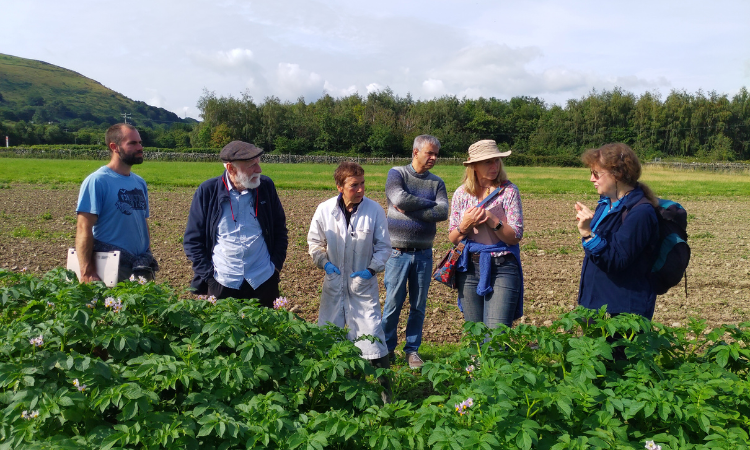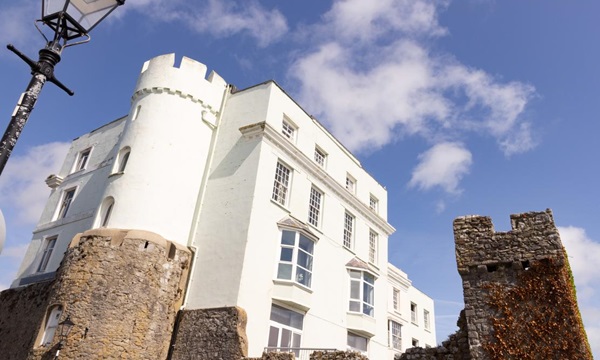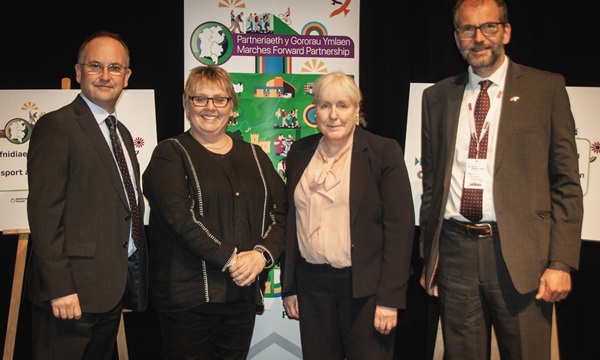Most of us enjoy crisps, chips and baked potatoes, yet few of us realise that growing potatoes uses intensive soil cultivation and very large inputs of inorganic nutrients, herbicides, fungicides and insecticides.
It leads to continuous degradation of farm soil and large emissions of two major greenhouse gases, CO2 and N2O.
The new project, Transformative Reduced Input Potatoes (TRIP), brings together Dyson Farming Ltd., The James Hutton Institute, Emerald Research, Light Science Technologies, The Sarvari Research Trust and scientists from Bangor University’s School of Environmental and Natural Sciences and BioComposites Centre to test out a range of regenerative cultivation methods that could reduce the environmental damage caused by producing potatoes. The project consortium includes a range of commercial potato growers across England – from Lincolnshire to Cornwall – and includes farms owned and managed by Dyson Farming.

The three-year TRIP project is funded by the Department for Environment, Food & Rural Affairs (Defra) through Innovate UK’s Farming Innovation Programme. It will investigate new breeds of disease resistant potato, new nutrient treatments for use on leaves not soil, reduced tillage methods including use of mulches as a growing medium and new methods to monitor greenhouse gas emissions from farmers’ fields.
Dr Christine Jones from Dyson Farming said,
“Many farmers are seeking ways of producing their crops more sustainably but the particular requirements for growing a potato crop can make it a challenge to incorporate potatoes into a sustainable rotation. Outcomes from the TRIP project can be expected to offer growers a range of methods to reduce inputs to, and impact from, potato crops. Collaboration between the TRIP partners provides an exciting opportunity to bring together different areas of development and to turn science into practice for potato growers.”
Professor Dave Chadwick from the School of Environmental and Natural Sciences at Bangor University said,
“There is an urgent need to reduce the greenhouse gas emissions from all sectors, including agriculture. This Innovate UK project will allow us to assess the potential of these novel strategies to reduce greenhouse gas emissions whilst maintaining potato yields. The project has been designed to compare both greenhouse gas emissions and crop yields from conventional and novel production methods, in replicated plot-scale experiments and at the field-scale on commercial farms. In addition, we have the opportunity to test a new greenhouse gas measurement sensor with one of our project partners.”

Josh Davies from the The BioComposites Centre at Bangor University said,
“As an early career researcher, I am very interested in science approaches that will help reduce greenhouse gas emissions especially in the agriculture sector. The TRIP project is therefore a great opportunity for me to further my experiences. My role will be helping to develop the processes used to monitor and determine green-house gas emissions and measure the nitrogen content in soil throughout the project.”
Emma Marshall, Head of Development and Alumni Relations at Bangor University said,
“These exciting developments have been made possible through the support for the project by a legacy left to Bangor University by alumnus Dr Trevor Williams. Dr Williams, who achieved a PhD in Agricultural Botany in 1962, was renowned as one of the “fathers” of the so-called ‘Doomsday Vault’, the Svalbard Global Seed Vault in Norway. This is where millions of seeds are stored for posterity deep beneath the Arctic permafrost. We are very proud of Dr Williams' accomplishments, and sure he would be proud of what his generous bequest to Agricultural Botany at Bangor University has helped achieve.”
Dr Katherine Steele from the School of Environmental and Natural Sciences at Bangor University said:
“I am very excited to lead Bangor’s component of this project which is the result of a long working partnership with the Sarvari Research Trust. Now, with this funding and the experienced team of collaborators we hope to provide some answers to the big question: how can we improve the sustainability of food production?”











